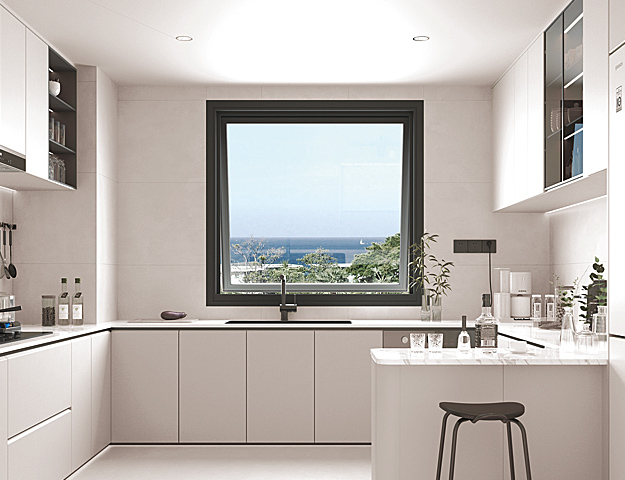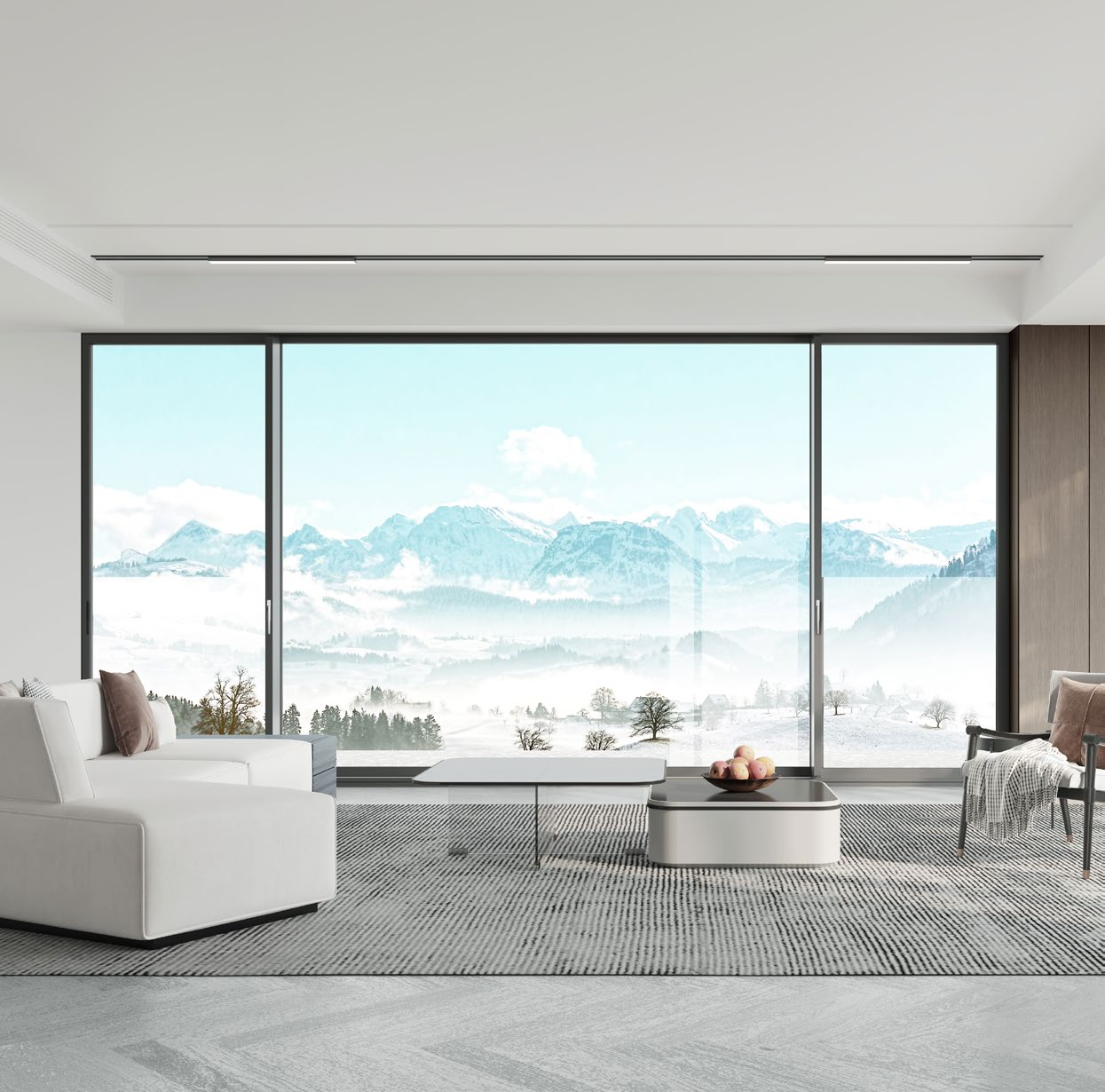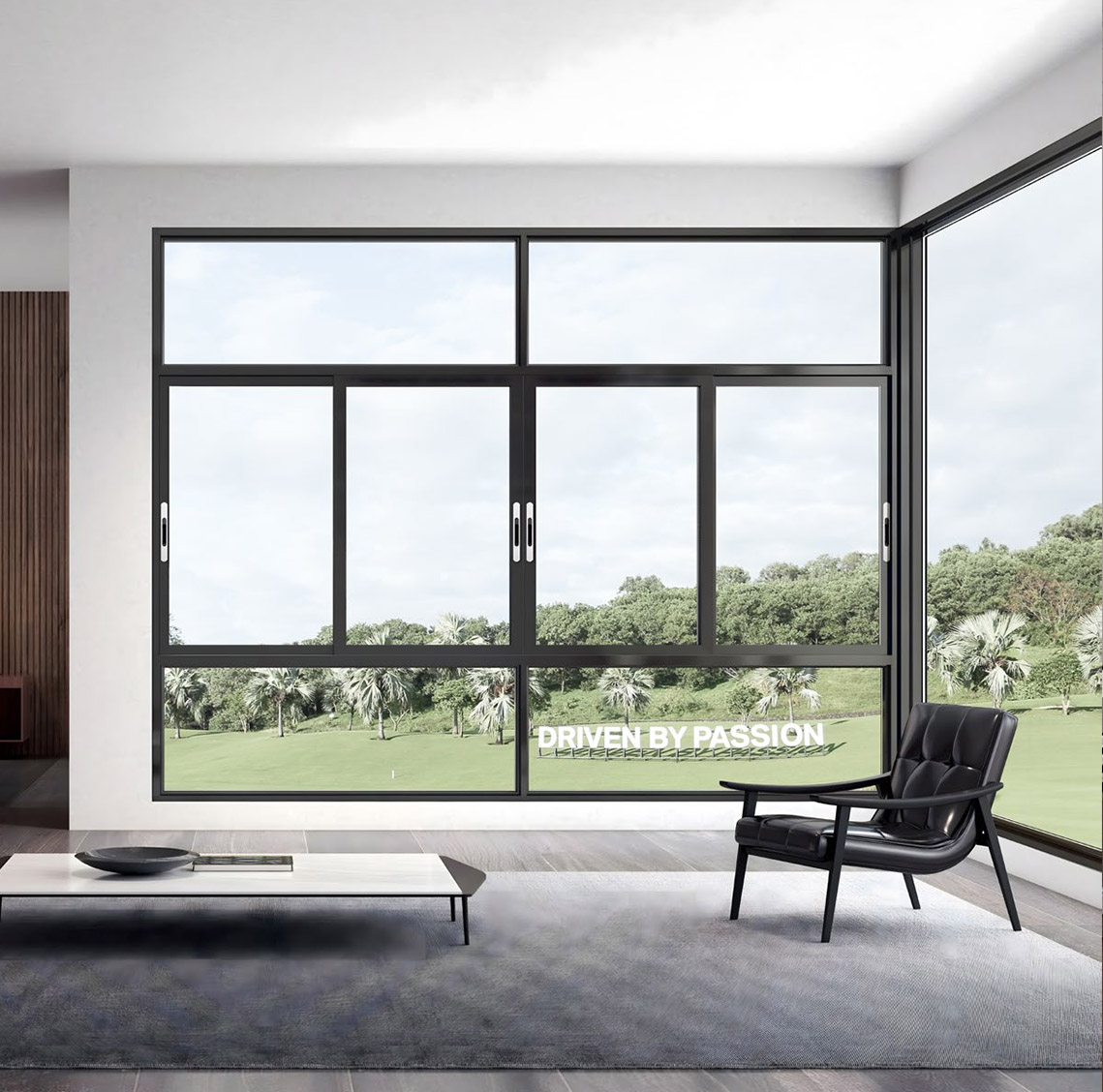Why Are Aluminum-Clad Wood Windows So Expensive?
Windows are an essential part of home life. The origin of windows can even be traced back to primitive societies, where ancient people created openings in natural caves to let in light, forming the most primitive version of a window.
Since then, as architectural styles have evolved, the design of windows has also continuously developed. Today, windows available on the market can generally be divided into three categories based on material: aluminum windows, uPVC windows, and aluminum-clad wood windows.
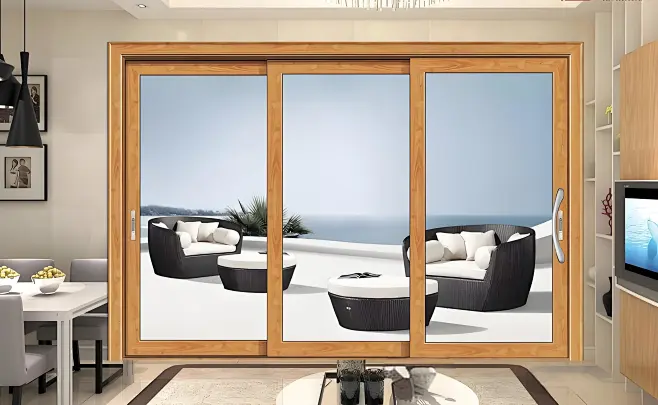
Why are aluminum-clad wood windows so expensive?
Among these, aluminum-clad wood windows are the most costly. Generally, the price of aluminum-clad wood windows is around ¥2,200 per square meter, while higher-quality options with better after-sales service can exceed ¥2,500 per square meter. Products priced below ¥2,000 are mostly low-quality imitations with poor results—similar to a disappointing “buyer’s show”—and are not within the scope of our discussion. Although aluminum-clad wood windows are far more expensive than aluminum and uPVC windows, their market share continues to grow. What makes people willing to invest more in aluminum-clad wood windows? And why are they considered a “luxury” product? Let’s take a closer look.
- What Are Aluminum-Clad Wood Windows?
Simply put, aluminum-clad wood windows are wooden windows with an external layer of aluminum. This combination seamlessly integrates interior wood with exterior aluminum. The inner wooden structure complements the natural style of indoor décor, while the external aluminum harmonizes with the building’s exterior, enhancing the window’s resistance to sunlight, rain, and other weather conditions. This eliminates common concerns associated with purely wooden products.
It’s important to note that there is a product on the market that looks very similar to aluminum-clad wood windows—wood-aluminum composite windows. However, these are far less expensive and perform significantly worse. The two types differ fundamentally in structure: aluminum-clad wood windows are primarily made of wood with an external aluminum layer (more wood, less aluminum), while wood-aluminum composite windows consist mostly of aluminum with an inner decorative wood layer (more aluminum, less wood). In essence, the latter is a “faux wood window”—an aluminum window with an attached wooden panel. Consumers should exercise caution when making a purchase.
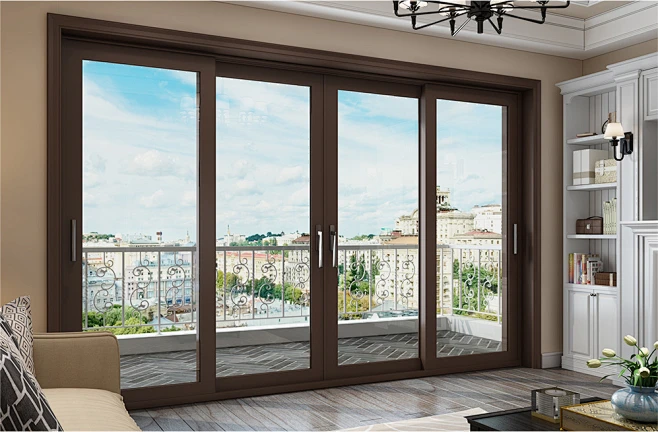
- Performance Advantages
Thermal Insulation:
Compared to aluminum and uPVC windows, aluminum-clad wood windows excel in thermal insulation. The thermal conductivity of wood is as low as 1.3, far superior to aluminum (3.0) and uPVC (2.2). The composite structure of aluminum-clad wood windows further enhances their insulation capabilities.
Environmental Sustainability:
Studies show that the energy consumption ratios for producing aluminum, uPVC, and aluminum-clad wood windows are 20:8:1, respectively. Aluminum window frames rely on non-renewable bauxite, while uPVC windows are derived from non-renewable petroleum. In contrast, wood comes from a renewable resource—forests. With responsible sourcing, wood is an endlessly sustainable material.
Fire Resistance:
Aluminum has a melting point of 650°C. Even with fire-resistant glass, the frame may collapse, causing the glass to fall and fail.
uPVC melts between 120°C and 210°C. In a fire, it emits toxic gases and cannot be used in fire-rated windows.
Wood ignites at around 250°C. However, due to its natural insulating properties and the protective charcoal layer formed when burned, it prevents heat from transferring to the unexposed side, reducing the risk of spreading flames.
- Durability
uPVC and aluminum windows are prone to issues with components such as rollers, switches, and sealing strips. If purchased from reputable manufacturers with high-quality parts, these components may last 7–8 years but are often difficult to replace. Another drawback of uPVC windows is degradation—prolonged exposure to UV radiation causes the material to fade, become brittle, and lose its mechanical strength. These windows are also susceptible to expansion in heat and contraction in cold, leading to operational issues like jamming, poor sealing, and drafts.
In contrast, the production of aluminum-clad wood windows involves advanced technology and high-precision machinery, such as computerized wood cutting and aluminum processing systems. Most raw materials, including wood, hardware, and seals, are imported, ensuring superior quality. As a result, these windows often last as long as the building itself. In Europe, many century-old homes and heritage buildings still feature aluminum-clad wood windows that remain functional and reliable despite showing signs of age.
Aesthetic Appeal
Although uPVC and aluminum windows now come in more colors and even wood-like finishes, they still lack the warmth and authenticity of real wood. Aluminum-clad wood windows, with their unique natural grain and soft texture, create a harmonious blend with wooden furniture and interior décor. They fulfill the modern desire for a natural and organic living environment. For those who appreciate wooden aesthetics and have the budget, aluminum-clad wood windows are an irresistible choice.
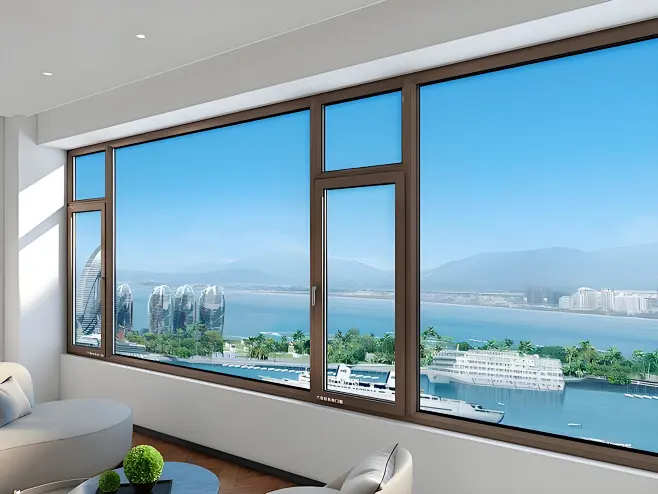
Contact State Crown
Explore the State Crown products
HAND-CRANK WINDOW
HAND-CRANK WINDOW GB-100
State Crown’s hand-crank windows solve accessibility challenges with smooth mechanical operation. Featuring heavy-duty stainless steel gears and corrosion-resistant linkage systems, our cran...
SLIDING DOOR
HEAVY DUTY LIFT-SLIDE DOOR GB-127
The GB-127 Heavy Duty Lift-Slide Door combines robust engineering with effortless operation, designed to meet high performance standards in both commercial and residential settings. Its innovative...
SLIDING WINDOW
SLIDING WINDOW GB-75
Engineered for modern architectural needs, the GB-75 sliding window combines robust construction with effortless operation. Ideal for residential and commercial applications, this system offers su...
Contact State Crown
Custom Solutions for Global Projects
Established in 2005, we specialize in the customization of premium aluminum alloy doors and windows. With over ten years of industry experience, we are committed to the product philosophy of "Safety, Practicality, and Advanced Technology".
- ISO9001 Quality Management System
- EU CE certification
- IPMS (Intellectual Property Management System)
- Australian, American, and Canadian standards
We are located in Foshan, Guangdong, just under one hour's drive from Guangzhou Baiyun International Airport, in the heart of the Pearl River Delta Economic Zone.
If you are interested in any of our products, or would like to discuss a custom order, please feel free to contact us. We look forward to building long-term business relationships with clients around the world.
